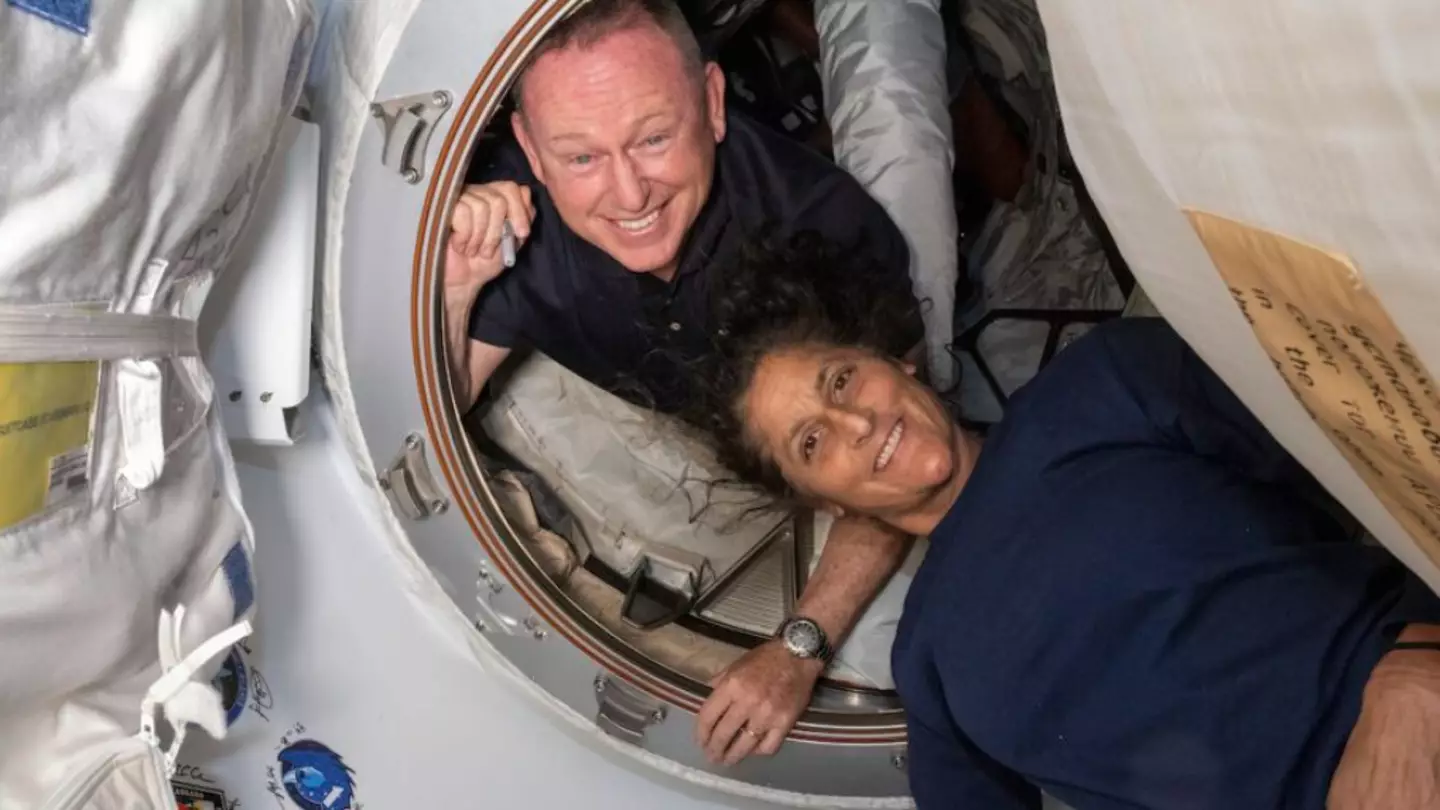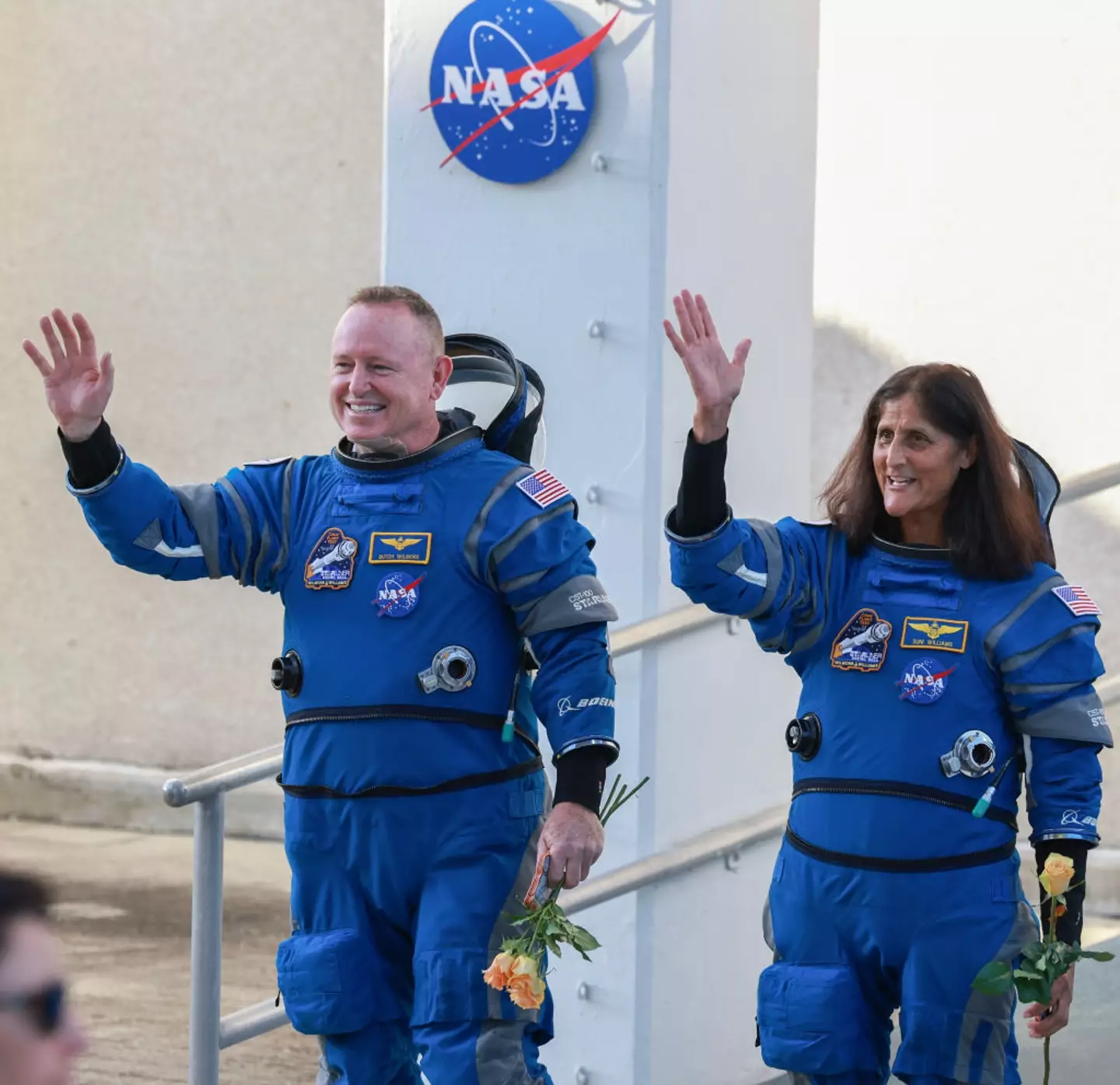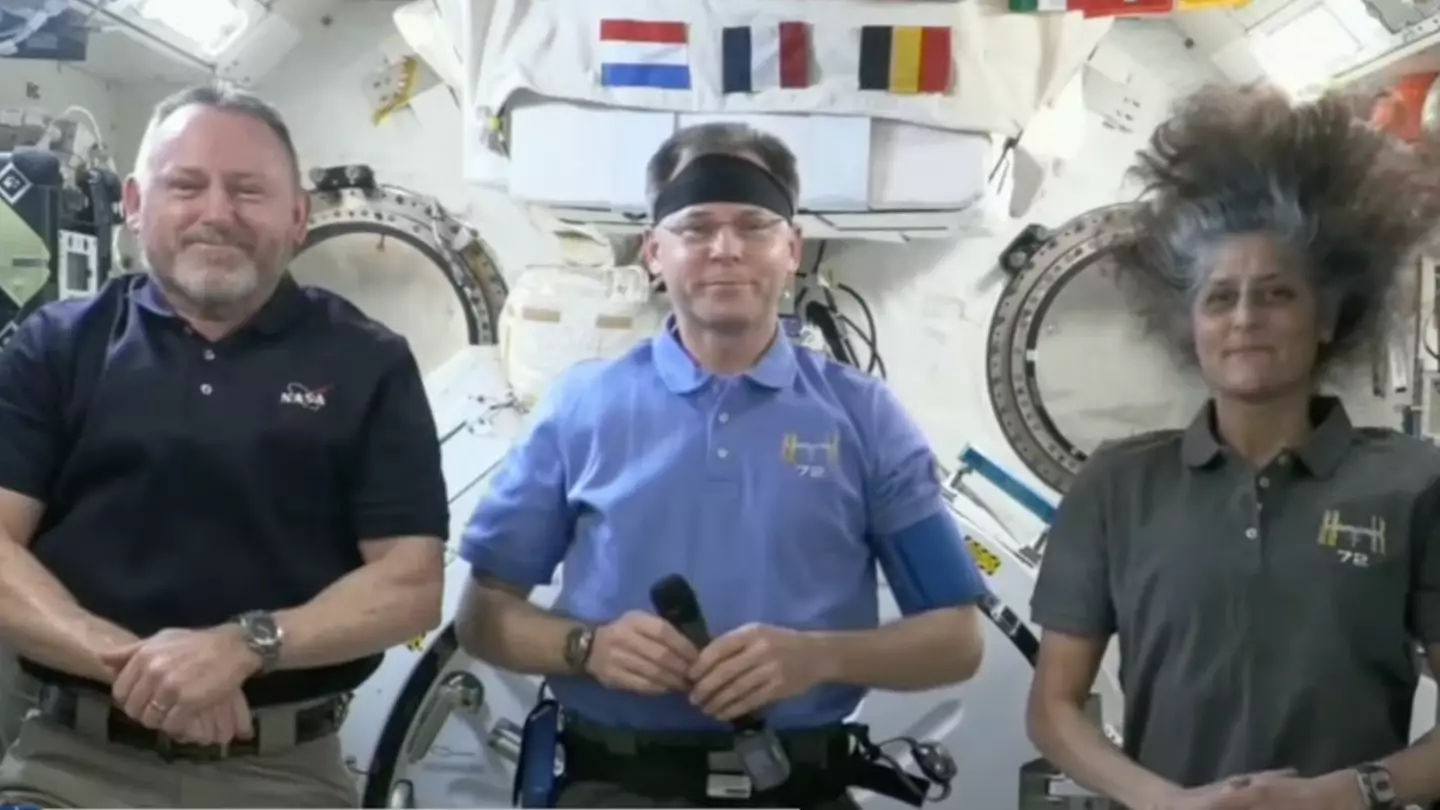
An expert has explained how spending nine months in space could impact an astronaut's vision, after two NASA crew have been left stranded on the International Space Station (ISS) for several months.
On June 5, 2024, Sunita Williams and Barry Wilmore set off on an eight-day mission on a Boeing Starliner spacecraft.
It was the Starliner's first crewed flight to the ISS, but unfortunately, the mission did not go to plan and after suffering with thruster failures and helium leaks, the team were left stranded.
It was deemed too dangerous for the crew to return on the Starliner, so instead SpaceX will be bringing the pair back to Earth.
Advert
Following several delays, it's now been confirmed that Williams and Wilmore will finally start they journey back home from the ISS via a SpaceX Dragon capsule this month.
With the pair having been up in space for so long, many people have wondered what impact the extended trip could have had on their bodies.
The impact being in space has on their bodies
According to the Baylor College of Medicine, there are several ways prolonged time in space can affect the human body.
From your bones losing density and experiencing decreased muscle mass, to decreases in blood volume, orthostatic tolerance, and aerobic capacity – too much time in space can cause detrimental effects.

Another cause for concern is space radiation. Exposure can cause astronauts to have radiation sickness, central nervous system effects, and degenerative diseases.
In addition to this, space radiation causes 'increased lifetime risk of cancer'.
Being in space for so long can have an impact on the eyes, too.
Alan Duffy, an astrophysicist at Swinburne University told the Guardian: “Fluids build up in their heads, to they feel like they have a constant cold.”
The fluid build up can also change the shape of the eyeballs and weaken the vision, Duffy added, explaining that while vision problems can go back to normal, astronauts may need glasses.

The impact on their bodies when back on Earth
A previous study involving identical twins Scott and Mark Kelly saw Scott head to space for almost a year, while Mark stayed on Earth.
When he returned, they compared the differences between them, with Scott's almost year-long mission in mind.
One thing that Scott experienced after returning home was heightened sensitivity and a rash for around six days after he returned from the space station, BBC News reported; something which Williams and Wilmore may experience as well.
The study involving the Kelly twins also found that Scott's DNA was affected by his space travel.
Telomeres naturally shorten with age, but 'astronauts in general had many more short telomeres after spaceflight than they did before [space travel]', said Susan Bailey, a professor of environmental and radiological health at Colorado State University, who was part of the study that looked at the Kelly twins.
When will the astronauts return?
The NASA and SpaceX mission to return the astronauts was originally planned for March 12, returning on March 16.
However, due to a hydraulic issue, the mission remained grounded.
The next launch is scheduled from Florida on Friday, March 14.
NASA explained: "NASA and SpaceX are proceeding with plans to launch the agency’s Crew-10 mission at 7:03 p.m. EDT Friday, March 14, to the International Space Station. On Thursday, SpaceX ground teams completed inspections of the ground support hydraulics system used for the clamp arm supporting the Falcon 9 rocket and successfully flushed a suspected pocket of trapped air in the system."
